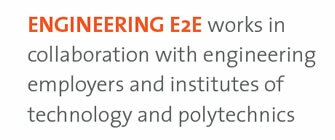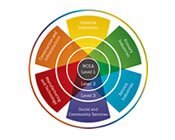EDUCATION LINKS CASE STUDY
Key learnings from TPP pilot programme

The Techlink Pathways Project (TPP) pilot programme was set up to explore ways to build relationships between tertiary institutions and local secondary schools. It aimed to give students some experience of engineering so that they might consider an engineering pathway in the future. We look at key learnings from the pilot and an example of successful links.
A pilot programme
The TPP pilot was established to trial the facilitation of links between schools and polytechnic engineering departments. It aimed to explore ways to build relationships, making it easier for tutors and teachers to collaborate on programmes of study which would offer secondary school students a flavour of engineering and engineering study.
Three tertiary institutions – Wintec, Weltec and Otago Polytechnic – were keen to be involved and there was a positive response from schools in Hamilton, Hutt Valley and Dunedin. The pilot called for secondary and tertiary staff to develop a programme together and for polytech tutors to work alongside the students and teachers.
Anticipated outcomes
Ideally, the pilot would look at the feasibility of developing strong, ongoing relationships between schools and engineering departments. Their programmes would not only give students experience of engineering and of working in a polytechnic facility, but would also highlight the pathways and opportunities in engineering – helping schools, students and parents become more aware of the alternative pathways available.
Key learnings
It’s exciting when relationships between tertiary and secondary institutions work well, particularly when we hear reports of students considering an engineering career as a result of their experience. The pilot has showed us, however, that enthusiasm just isn’t enough. There are some great examples around the country of school students working at a polytechnic, but for these sorts of initiatives to be consistently successful, there needs to be:
- Flexibility :
- school timetabling makes it difficult to take students out for more than a period
- A champion:
- brilliant things can happen when someone’s driving an initiative, but if that person is removed (illness, redundancy, a term’s leave) it often means the impetus is also gone
- is also required in the senior leadership team to back up an individual teacher’s efforts, especially as there is so much going on in schools
- Commitment :
- if participants are unavailable for meetings (school/polytech holidays, outside of office hours) an initiative may be slow to get off the ground or simply collapse
- sometimes a programme fails because there wasn’t a real commitment to time – starting later in the school year risks barriers to student participation arising (exam periods, sports events). And if left too late a programme might fall over because Year 13 students leave school, resulting in a class that is only just viable
- sometimes a financial commitment is required, to cover someone’s time or for equipment.
Kaikorai Valley College/Otago Polytechnic
A link between Kaikorai Valley College and Otago Polytechnic proved so successful that it will be repeated in 2016. Head of Science Simon McMillan’s Year 12 Science students spent six afternoons at the polytech, working on skills development and creating a printed circuit board (PCB) to make a small USB charger.
Simon and Lecturer – NZDE Mike Keppel designed a programme together, looking at what they wanted the students to achieve and how their work could be assessed against NCEA unit standards. The great advantage to working at the polytech, Simon says, is that students gained access to materials and expertise he couldn’t offer at school. ”Sharing resources means we don’t have to duplicate equipment that the polytech has.”
Students had to commit their own time to the project – the 2:30-4:30 slot was selected as a time when the polytech engineering facilities aren’t being used as much. 12 students were able to attend, as some had jobs or other commitments straight after school. “The students were very enthusiastic,” says Simon, “It was an exciting change to the programme and they were fully engaged with the practical work.”
On the first day, the students etched and developed their PCBs. In subsequent lessons they drilled holes, arranged components, soldered them, and checked the working order of their product – a portable USB charger. They also worked with Simon at school on safety, component identification, online schematic diagrams and soldering techniques.
After trialling the programme with this group (who are more likely take a trades pathway), Simon is keen to give his Physics students the same experience. He notes that the PCB project fits well with changes in the way the school is teaching science. “We’re doing more applied science now with the top academic students.”
Simon points out that for this sort of partnership to work, there needs to be more flexibility and fluid timetabling in schools. “Even if this had been a good idea, and even if it had been good for the students, it wouldn’t be a goer without that. In Dunedin, all the local schools are in close proximity which really helps in making this happen.”
Engineering E2E is keen to see not just high achievers involved in this sort of interaction, but others who may not consider engineering or have thought about going to polytech. This, of course, requires those students to continue taking Maths and Science at senior level.
Our thanks to Glynn McGregor and Simon McMillan for their time and advice.
If you have any questions, please get in touch at
December 2015
 |
 |
 |
||
 |
||||
 |
||||
 |






